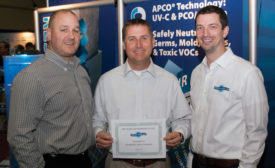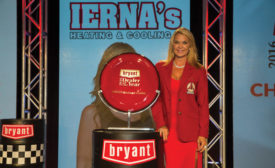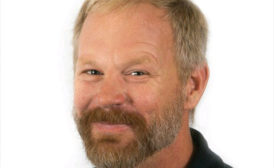Home » newsline
Articles Tagged with ''newsline''
Lochinvar Honors VIP Contractors in Nashville
16 contractors and their guests receive grand prize of all-expenses-paid trip
June 27, 2016
Honeywell to Lead Modernization Project
Manufacturer to help upgrade systems at Tobyhanna Army Depot in Pennsylvania
June 27, 2016
ACCA CEO Promotes HVAC Installations
President Paul Stalknecht lobbies energy secretary for quality installations
June 27, 2016
Fresh-Aire UV Honors Daugherty Sales Co. Inc.
Company also received Fresh-Aire UV’s Rep of the Year Award in 2013, 2015
June 27, 2016
AHRI President Asks for EPCA Reforms
Updates should ‘reflect new technologies and economic realities’
June 27, 2016
Ierna’s Heating & Cooling Wins Bryant Award
Company also names 15 Medal of Excellence winners at 2016 Bryant Dealer Rally
June 27, 2016
IAQ Concerns Drive Air Filter Market
Market is forecast to grow at CAGR of 5.6 percent from 2016-2020
June 20, 2016
Global HVAC Equipment Demand to Grow
Report predicts growth will slow from the 2010-2015 pace
June 20, 2016
Copyright ©2024. All Rights Reserved BNP Media.
Design, CMS, Hosting & Web Development :: ePublishing




